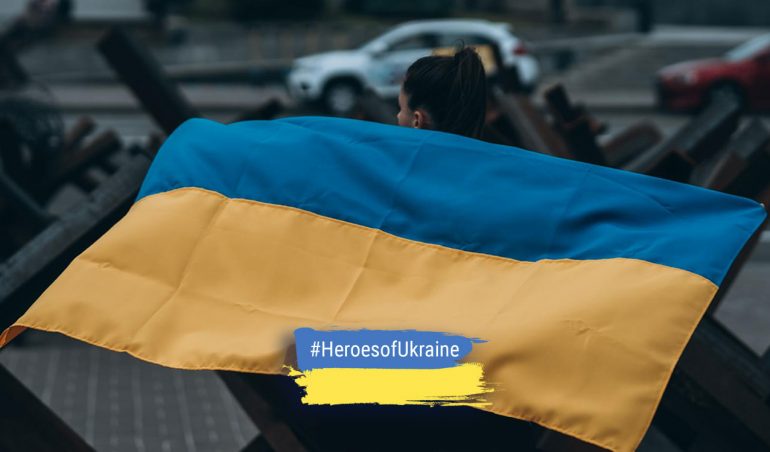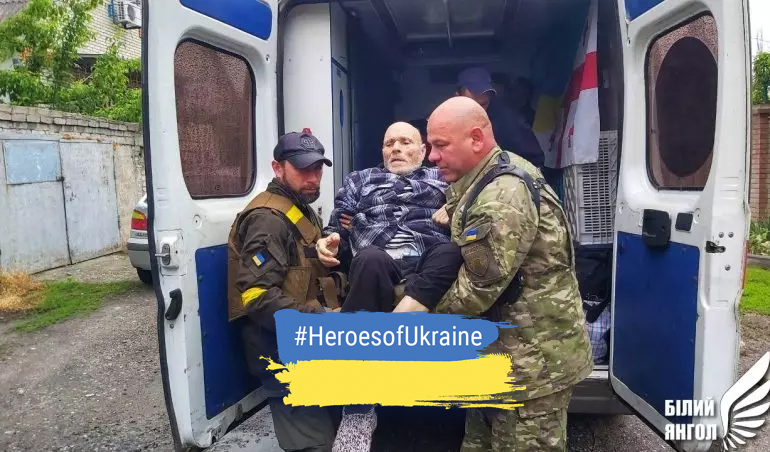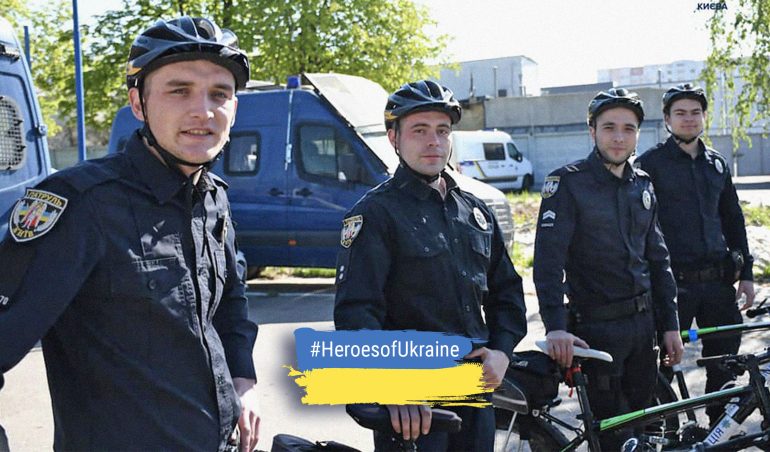#HeroesofUkraine: The Donetsk Police Communication team risks their lives to inform about war crimes of the Russian aggressor – interview with Oleksandra Havrylko, the Head of the local police communication department
August 22, 2022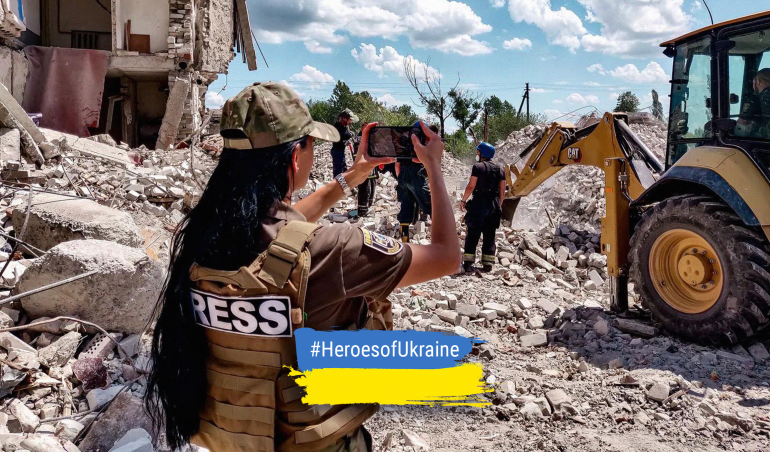
The horrors currently taking place in Ukraine are sometimes challenging to explain in words. Here it is more appropriate to use videos and photos to show the world what crimes Russia is committing in Ukraine. The Head of Communications of the Police of the Donetsk region Oleksandra Gavrylko and her team do everything possible to ensure that the civilian population receives timely information about the situation in the region. They travel to dangerous areas to document enemy shelling, personally meet with civilians, and create information material about police work.
The European Union Advisory Mission (EUAM) recently spoke with Oleksandra about the work of the National Police in the East of Ukraine and the challenges she and her colleagues face daily during the war.
What are the main tasks of the communication officers of the Police in th Donetsk region during the war?
We document the consequences of the shelling and do police work on the ground. The main topic for communication remained the same: the crime situation in the region. Due to the military aggression, new informational topics were added, such as documenting the consequences of armed aggression, humanitarian aid to people, and the evacuation of civilians. Since we cover events in different areas of the region, we need to be mobile to be on time everywhere.
At this moment, the main topic is the evacuation of the civilian population from dangerous areas, especially children. In our communications, we try to explain why it is necessary to evacuate from the frontline areas on time. For this, we not only create informational products but also go to the populated areas to hold meetings with the adult population and explain the importance of staying in safe regions of Ukraine.
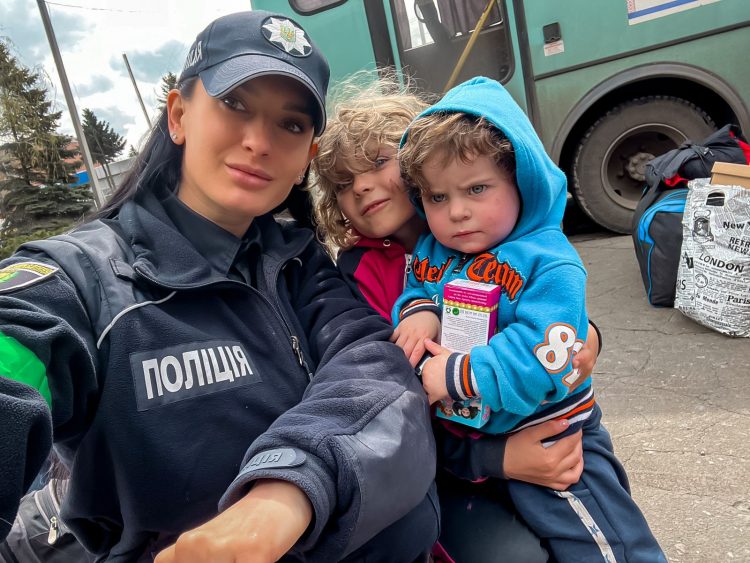
“We not only create information products but also go to the populated areas to hold meetings with the adult population and explain the importance of staying in safe regions of Ukraine”.
How did the war affect the work of your unit and the Donetsk Police in general?
Despite the war, crimes continue to occur. Our task, as before, is to warn, identify, document crimes, and bring the culprits to justice. We continue to work with investigators, conduct the necessary examination and cooperate with the courts. The entire process of documenting crimes is fully functional. Yes, we have some inconveniences and problems, but we can find solutions for every challenge.
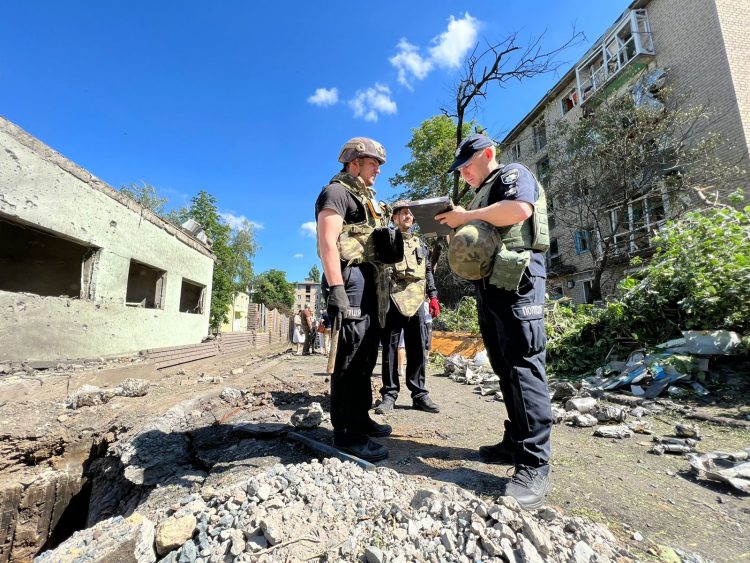
“Our [National Police] task, as before, is to warn, identify, document crimes, and bring the culprits to justice.”
There are no safe places in the East of Ukraine. That is why new paramedic units were created in each territorial police unit. These are the police and rescuers who are the first to answer calls in dangerous areas. In addition, each police officer undergoes regular first aid training and must carry first aid kits, personal protective equipment, and radio communication equipment. We have experienced that this saves lives.
The EU Advisory Mission continues to support the Ukrainian police through advice, training and donations of material. Read about the recent donations of protective equipment, first aid kits, IT equipment, and vehicles.
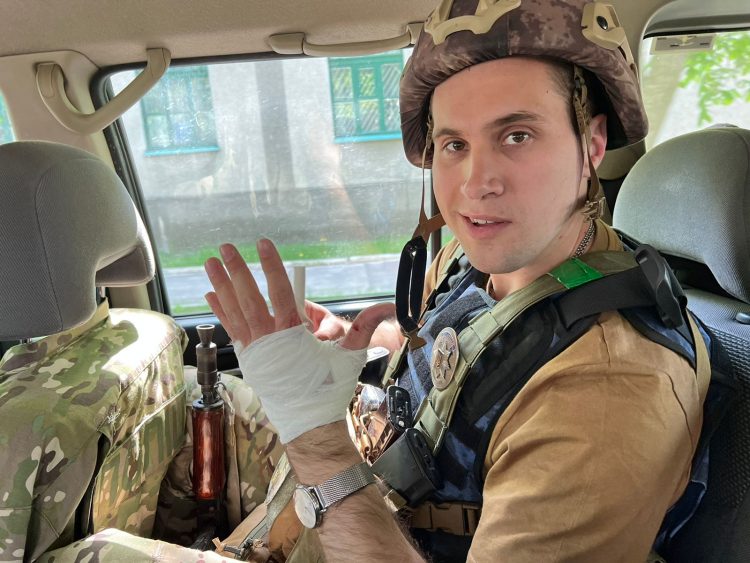
“We have experienced that this [first aid training] saves lives.”
How do you plan field visits to hotspots? What role do the specialists of your department play during such visits?
Each field visit resembles a small special operation. Before the trip, we contact the people who remain in the frontline towns, the Armed Forces of Ukraine, and study the operational situation. When preparing for departures, we discuss the trip plan with the management and crew members. Special attention is paid to the response of the team in emergencies. For example, if we come under fire.
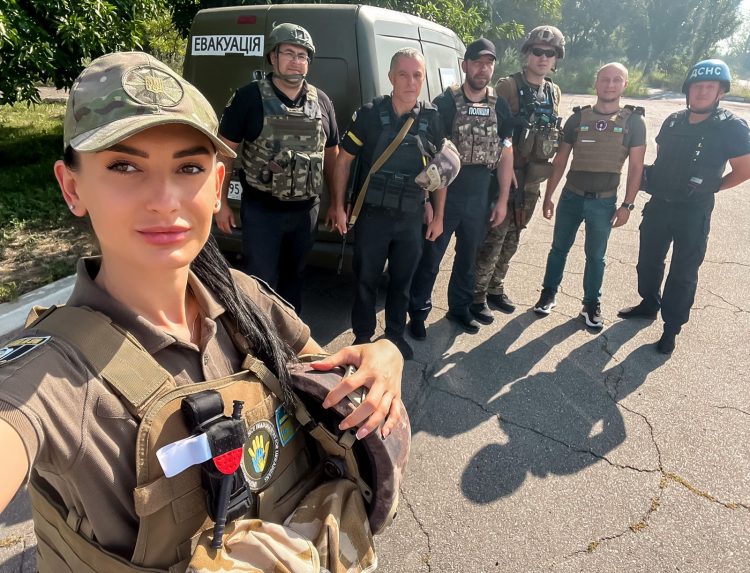
“Each field visit resembles a small special operation.”
When we go to shoot scenes, we become part of the group. We not only film the work of this group but also help to distribute humanitarian aid, help the elderly get to evacuation transport, etc.
It is worth remembering that we are not just journalists. We are police officers who know what can be shown to the viewer. For example, we do not cover military positions, block posts, or our exact location because otherwise, it could endanger the civilian population.
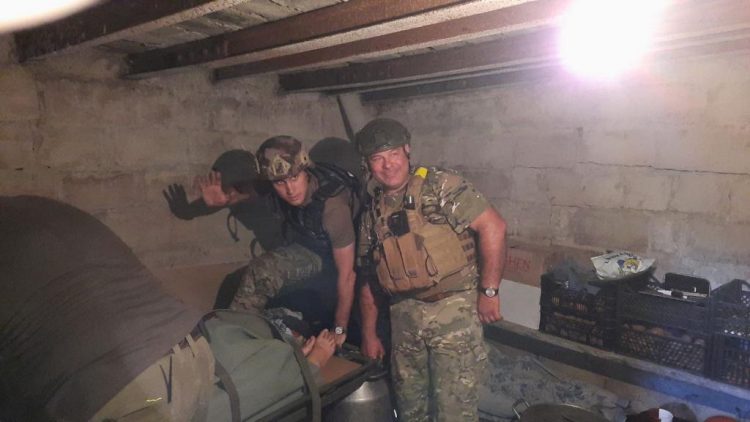
“We not only film the work of this group but also help to distribute humanitarian aid, help the elderly get to evacuation transport, etc.”
What challenges do you currently face? How do you overcome them?
Previously, our department had a lot of professional equipment. Now all this is gone. Filming is carried out using a camera and a smartphone. It is convenient to stay mobile with them, even in life-threatening situations.
But the main challenges are not in the equipment. This is secondary. The biggest challenges are of psychological nature: we are constantly in human grief. People are tired of war, shelling, and other horrors.
Your work involves a direct danger to life. What motivates you to work daily?
We, the communications team, are motivated by our colleagues. These are our guys from the ranks of the police, emergency, and demining services, who help the civilian population survive every day. They do a tremendous job. Therefore, we strive to show this to the world and the terrible things that Russia is doing here in Donbas, killing adults and children.
We try not just to convey an accurate picture of military events but to carry the optimism and steadfastness of our law enforcement agencies in the informational materials we are creating.
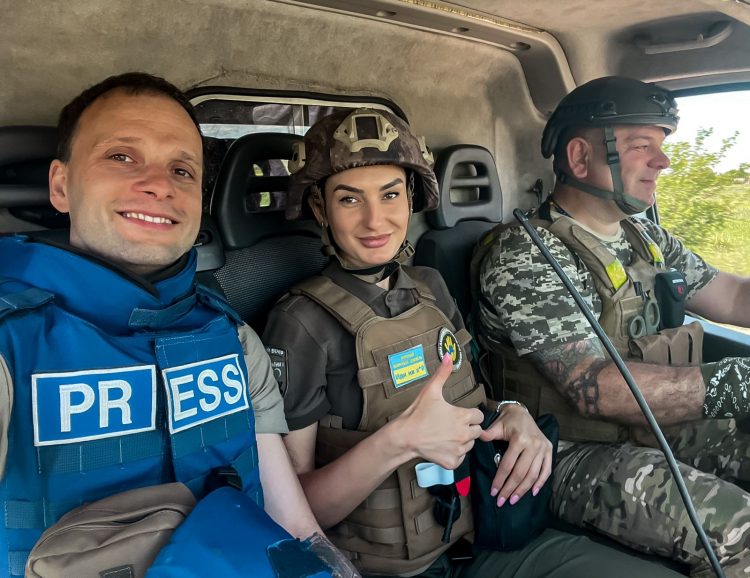
“We, the communications team, are motivated by our colleagues.”
EUAM is proud to have such partner as the National Police of Ukraine. Daily, the police officers from different departments prove by their deeds their love and dedication to Ukraine, professionalism, and unprecedented courage.


